- About
- Offerings
- Tools
- Pricing
- Partner
- GyanHub
- Resources

Crude oil, as the world’s most traded commodity, significantly influences global economies. Understanding the opening and closing times of crude oil markets is crucial for traders to make informed decisions and to avoid costly mistakes. This article delves into the importance of knowing these timings and how they can impact your trading success. The Importance […]

The relationship between central banks and gold prices is a complex one, with the former often playing a pivotal role in shaping the latter. Central banks, as custodians of their nations’ economies, wield significant influence over various financial markets, including the precious metals market. This article delves into the multifaceted ways in which central banks […]

In the world of commodity trading, where prices fluctuate based on numerous factors, economic indicators play a crucial role in guiding traders. The Multi Commodity Exchange of India (MCX) is a significant platform where various commodities such as gold, silver, crude oil, and natural gas are traded. Understanding economic indicators can give traders an edge […]
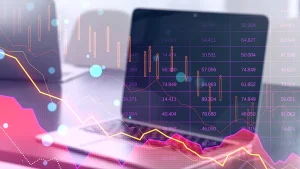
All the various kinds of assets and contracts that can be traded are referred to as trading instruments. Various sorts of trading instruments exist, some of which are more well-known than others.
They include indices, currencies, forward contracts, shares, and more. This article shall undertake a course to explore the trading instruments in commodities market. The commodity market instruments are key for the successful trading of commodities. For starters, let’s begin by defining commodities and then move on to the commodity trading instruments.
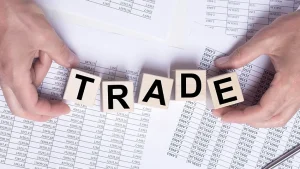
Food, metals, oils, and other items that people use on a daily basis are included in the category of commodities. Commodities can be bought and sold and have a dynamic nature. Simply put, commodity markets are locations where people can purchase, sell, or exchange commodities. In India, commodity trade first appeared in 1875.
Although foreign invasions, government regulations, natural disasters, etc, led to a decline in commodity trading. However, compared to other types of the stock market, commodity trading has performed well in the past and is still gaining popularity. SEBI has been overseeing the commodity market’s regulation since 2015. There are a number of items traded nowadays. In this article, we shall look at the best commodities to trade in India.
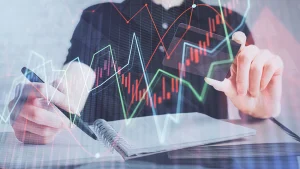
India’s commodity futures market has been there for more than a century. In order to trade cotton derivative contracts, the Bombay Cotton Trade Association formed the first regulated futures market in 1875. Institutions for trading in oilseeds, food grains, etc.used this as their model for trading. Between the First and Second World Wars, the Indian futures market expanded quickly. Numerous commodity exchanges were flourishing nationwide. They traded futures contracts in a variety of commodities like cotton, groundnut oil, jute, rice, and precious metals like gold and silver. Now, all these items are also available for futures trading. So, let us find out the list of commodities in mcx (Multi Commodity Exchanges) of India allowed for futures trading.
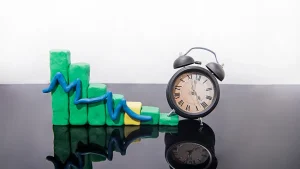
Trading in commodities may be thrilling and fast-paced, but you need to know when to act. You must be aware of the opening and closing times of the commodities markets in order to succeed in this industry. Knowing when to purchase and sell may make or break your profits, whether you’re a seasoned trader or just getting started.
To help you keep on top of things and make wise trading decisions, we’ll cover all you need to know about the MCX timing and trading hours of the commodities markets in this post.
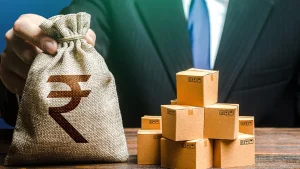
In secondary markets, we often trade assets such as stocks, bonds, and other financial instruments online. But few of us engage in commodity trading. Trading in raw resources such as metals, oilseeds, spices, gold, rubber, and other commodities is known as commodity trading. To diversify their portfolio, the majority of professional traders use commodities trading. Your investments may lower the total risk to your portfolio, depending on the commodity.

The practice of investing in gold is fairly common. Depending on their financial objectives, people invest money in various types of gold. The earliest type of gold investing is physical gold. However, there are now a variety of methods for investing in gold. Jewelry, gold coins, gold ETFs, sovereign gold bond taxation, digital gold, and other derivatives are all options for investors. Tax treatment varies depending on the type of gold investment. Let’s examine the tax on gold investment in India.

The precious metal known as gold exudes power. It stands for security in money as well as wealth and prosperity. While some people prefer to show off their wealth, others covertly amass it through a gold accumulation approach. Indians have a special affection for gold since it is a significant element of their social, cultural, and spiritual heritage.
It may be a good time for Indian households to invest in gold today and secure their future with a secure investment choice as gold continues to get attention globally and rises in price on a daily basis. Fortunately, investing in digital gold offers the average investor a terrific opportunity to accomplish just that today.
We’ll provide you with the information you need to determine if you can invest in digital gold using your bank’s Demat account, which you use to trade equities. We’ll also discuss a gold accumulation plan and how to invest in gold through demat account.
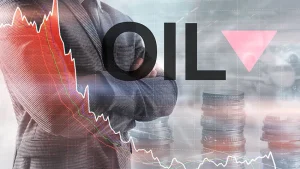
It was easy to recover from the first two shocks in the history of the oil and gas industry, and business continued after that. But the shock appears to be greater than it was this time, with oil prices at what they will be in 2021. The result is poor returns due to the introduction of shale gas, liberal economic market trends, more than sufficient supply, etc. Price levels are approaching the lowest they’ve been in nearly 30 years. What was supposed to be an extremely negative period in this sector has only been accelerated by the pandemic.
It must be noted, however, that trading in crude oil carries a risk and that market conditions may vary quickly. In order to make informed business decisions on the Indian crude oil market, it is appropriate to conduct thorough research, remain up to date with relevant news and developments, seek expert advice from financial professionals, or use dedicated trading platforms. Global and domestic factors can influence crude oil trading after a pandemic in India and post-pandemic oil trading
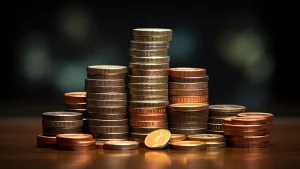
Gold has always been a preferred form of investment, particularly on auspicious events such as Akshaya Tritiya and Diwali, where gold is bought for ceremonial purposes in India. But people are now turning to other forms of gold investment, in paper form, as the price of actual gold increases. Gold Exchange funds, sovereign gold bonds, and physical gold are some of the most common investment products related to gold. Before deciding on investments, it is essential to understand each of them. This guide lists the three widely used products for investing in gold.
Unlike yellow metal, investors do not possess a physical form of Gold in such investment products. They can retain it as an investment that will be available whenever needed. In this article, you can learn about the key differences, advantages, and disadvantages of investing in gold ETF vs. sbg vs. physical gold.
So let’s move ahead in this physical gold vs. gold etf vs. sgb war.